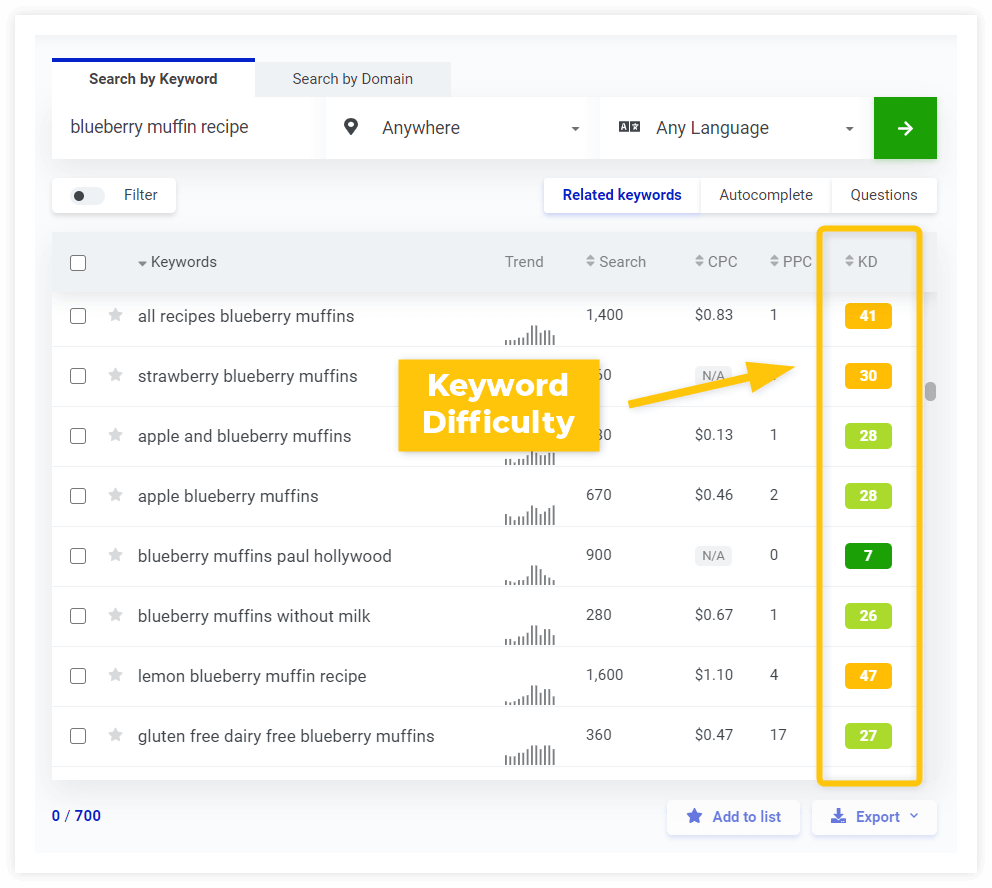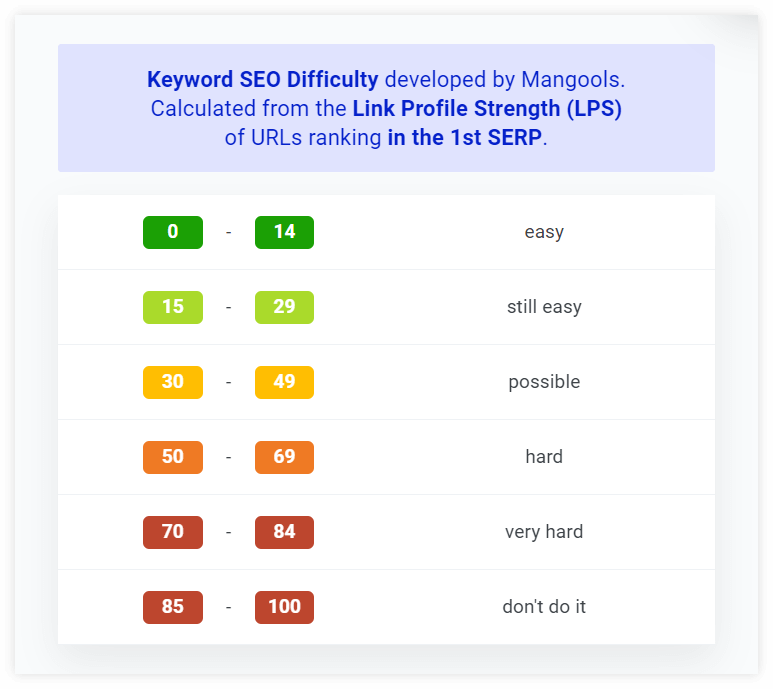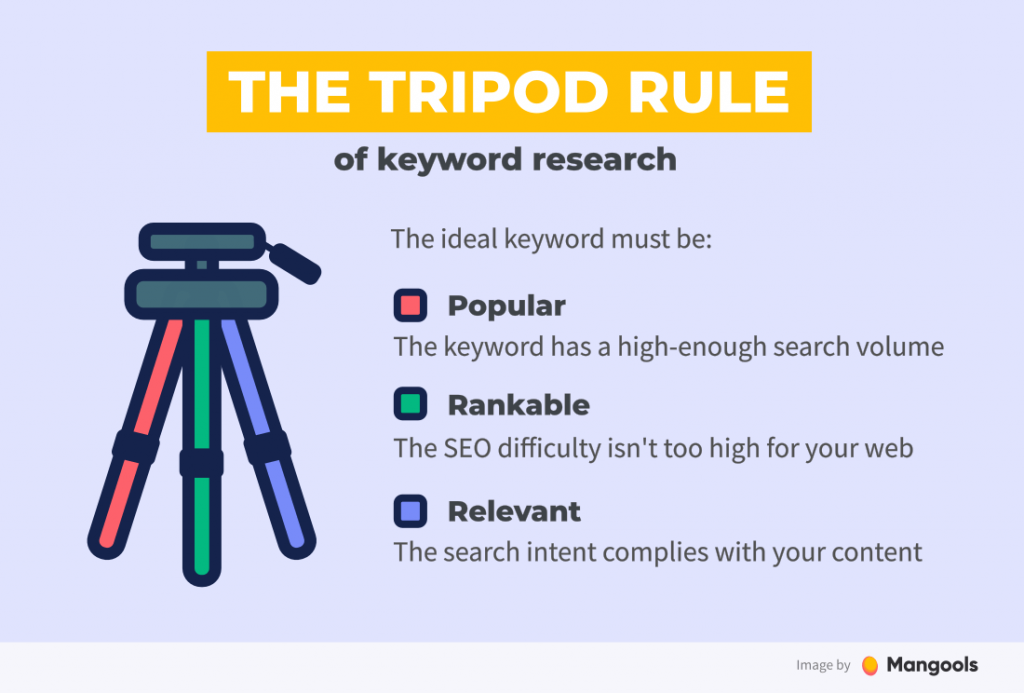In this guide, we’ll take a look at what is SEO difficulty, how it’s calculated, and why it’s so important when doing keyword research.
Everyone knows that the search volume of a keyword is an essential SEO metric.
But it’s much equally important to know what it takes to rank for that keyword. That’s why every keyword research tool operates with a metric called SEO difficulty.
Table of Contents
What is SEO difficulty?
SEO difficulty (also known as keyword difficulty) is an SEO metric that estimates how difficult it is to rank for a keyword on the SERP(Search Engine Results Pages).
The higher is the keyword difficulty, the harder it is to rank on the 1st SERP due to the high competition of the ranking websites.
There are many factors (both external and internal) that influence the degree of keyword difficulty, including the quality of the competitors’ pages and the quality of your page.

The term is usually used with two slightly different meanings:
- Keyword difficulty is a metric on a scale from 0 to 100
- Keyword difficulty as a general term taking into account all the aspects (both internal and external)
Keyword Difficulty (SEO Difficulty) as a Metric
Very often, the term “keyword difficulty” refers to the metric used in SEO tools that scores the ranking difficulty of each keyword on a scale from 0 to 100.
It works quite simply: the higher the score, the more difficult it is to rank for the keyword.
This is metric is also known as SEO Difficulty Score…
In KWFinder, the difficulty scores are also differentiated by color to help you navigate through the list of keywords more easily:

A beginner should pick keywords where SEO difficulty is Easy. Finding a long tail keyword will be an added advantage… Using this KWFinder keyword research tool.
How to use keyword difficulty in your SEO strategy
1. Look at the big picture
Keyword difficulty is only one of the major aspects, so you should consider it when doing keyword research.
The other two important aspects are the popularity of the keyword and relevance.

If there’s a low difficulty but the keyword has no search volume, you won’t get any traffic.
On the other hand, without relevance, you will not rank for the keyword even if the difficulty metric is low because the search intent doesn’t match your type of content.
2. Analyze the SERP results
Never rely on a single number given by a keyword tool. The keyword difficulty metric is there to give you a quick overview – not to replace the competitor research. In other words – SERP analysis is non-negotiable.
Besides the difficulty metric, always look at the SERP(Search Engine Results Pages) results and the actual websites that rank for the keyword.
You’ll learn much more about the search intent, the type of content that ranks for the keyword as well as how deeply your competitors cover the topic.
You may also notice, for example, that the top positions are mostly taken by “big brands” (e.g. Amazon, Pinterest, YouTube) with high authority, which may not be reflected in the 0-100 metric but will influence your ability to rank for the keyword at the top.
That being said…
3. Don’t be afraid of high difficulty
The keyword difficulty metric alone shouldn’t deter you from trying to rank for a keyword with medium or higher difficulty.
It’s more about getting a general sense of what you’re up against and determining what you need to do to make your page a viable competitor.
Here’s a couple of things that can help your rank for a highly competitive keyword:
- Outstanding content – you may outrank highly authoritative competitors with quality content that shows better expertise and covers the topic in a much deeper way.
- Topical relevance – having a narrowly oriented website with quality internal links can help you outrank authoritative websites that cover the topic only sporadically and rank mostly due to their overall brand authority
- Quality backlinks – a high number of quality backlinks to a specific page can help you rank for that page even if your overall domain authority is lower
4. Compare the values within one tool
There are many keyword research tools out there and each may use a different backlink database or a different way of calculating the keyword difficulty.
Therefore, the keyword difficulty scores may differ from tool to tool and it’s important to compare the values within one tool.
Keyword Difficulty is an important metric of Keyword Research that helps to rank the post on Google SERP.
Do consider checking our post that tells how to rank keywords on Google? A detailed explanation of keyword research will be useful for SEO.
You can find more information about Keyword Research topics here.
This guide contains all the information you need to improve your website’s search engine ranking by researching keywords.
